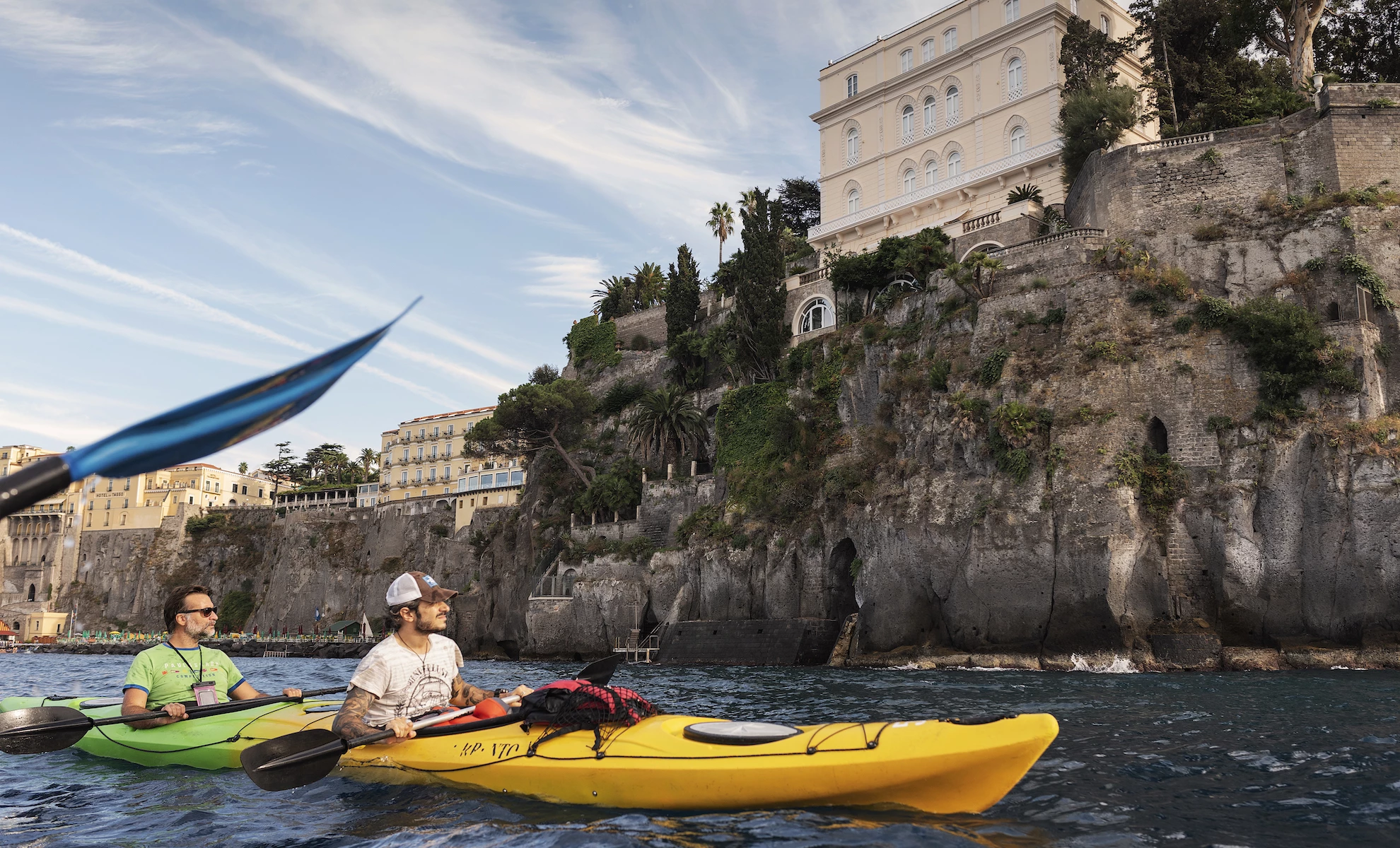Marco Vipsanio Agrippa Posthumus had all the right stuff to be the most powerful man in Rome: he was the nephew of the Emperor Augustus, the only heir to royal blood, grown under the wing of the influential Gens Giulia.
In the background the ancient Villa of Agrippa Posthumus | Ph. Anna Monaco
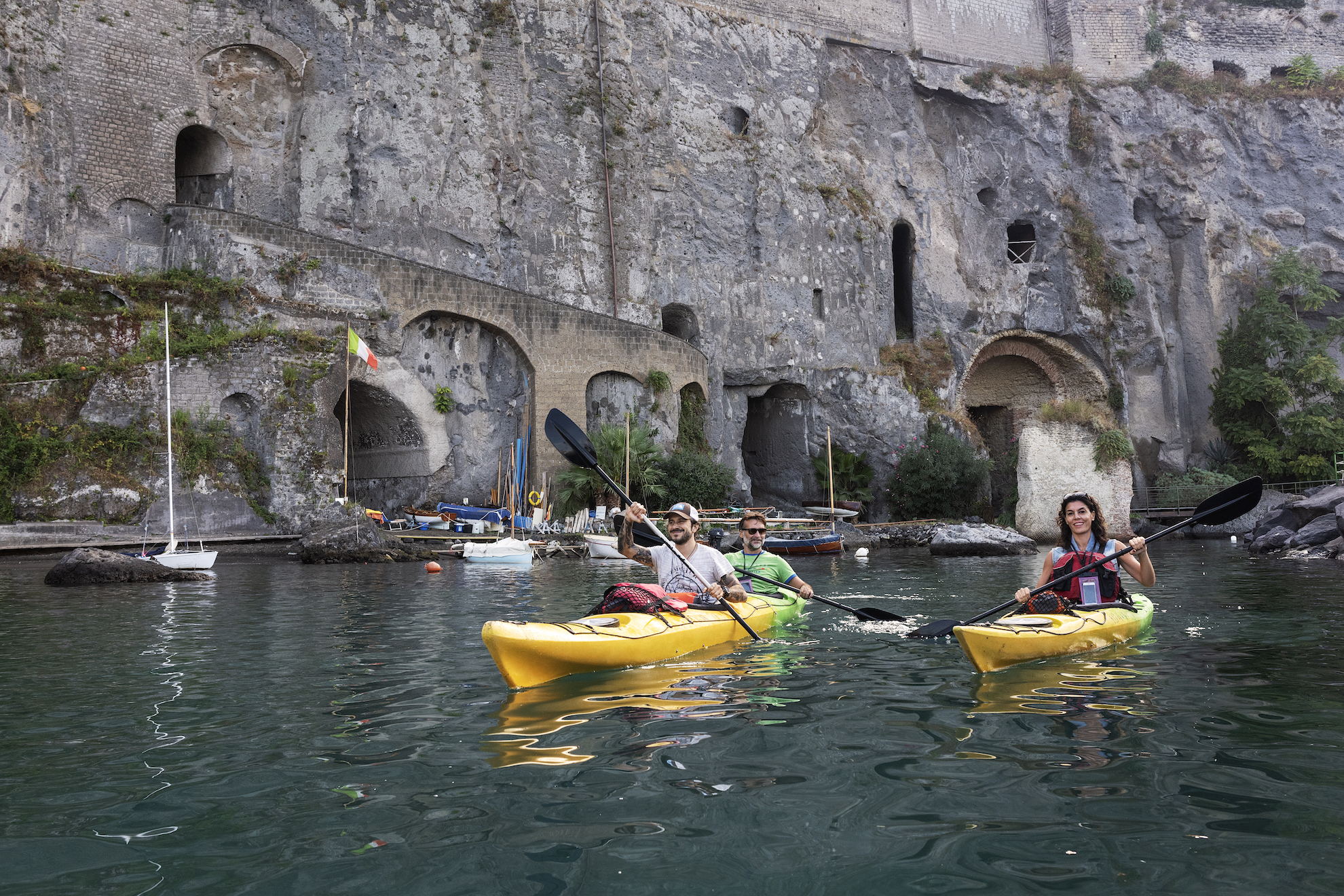
But being a relative of the Divine Augustus is irrelevant if you have a rebellious nature. The violent temperament and political incapacity were translated into exile for the young Agrippa: in the 6th century AD, at the age of 18, he was first expelled for a year in Sorrento and then confined to Pianosa, where he was assassinated eight years later in a conspiracy.
The forced stay on the Sorrento Coast was a turning point for Agrippa, who had been repudiated, but was still the emperor’s nephew: his exile was not the one of a political deportee, but of the most respected descendant of Rome.
The Villa is hidden along the Sorrento coast | Ph. Anna Monaco
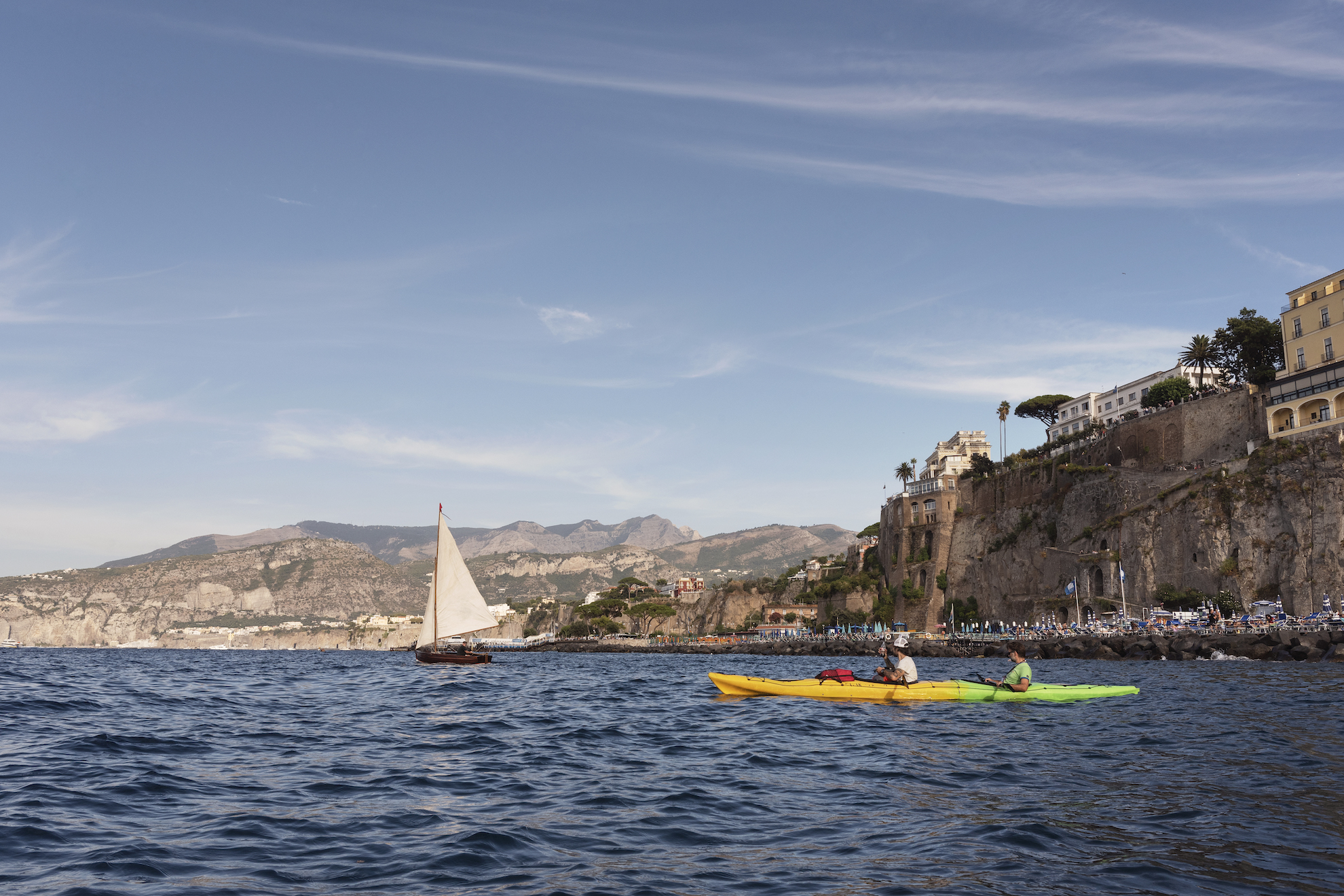
Once in the charming Sorrento, the prince began to devote himself to the passion for fishing, a significant hobby for a man who loved to call himself Poseidon. Since he wasn’t short of sesterces, he choose a mammoth villa on the sea with a fish pond in order to breed valuable fish species. Something to make envious the richest ones from Rome!
One of the nymphaeums | Ph. Anna Monaco
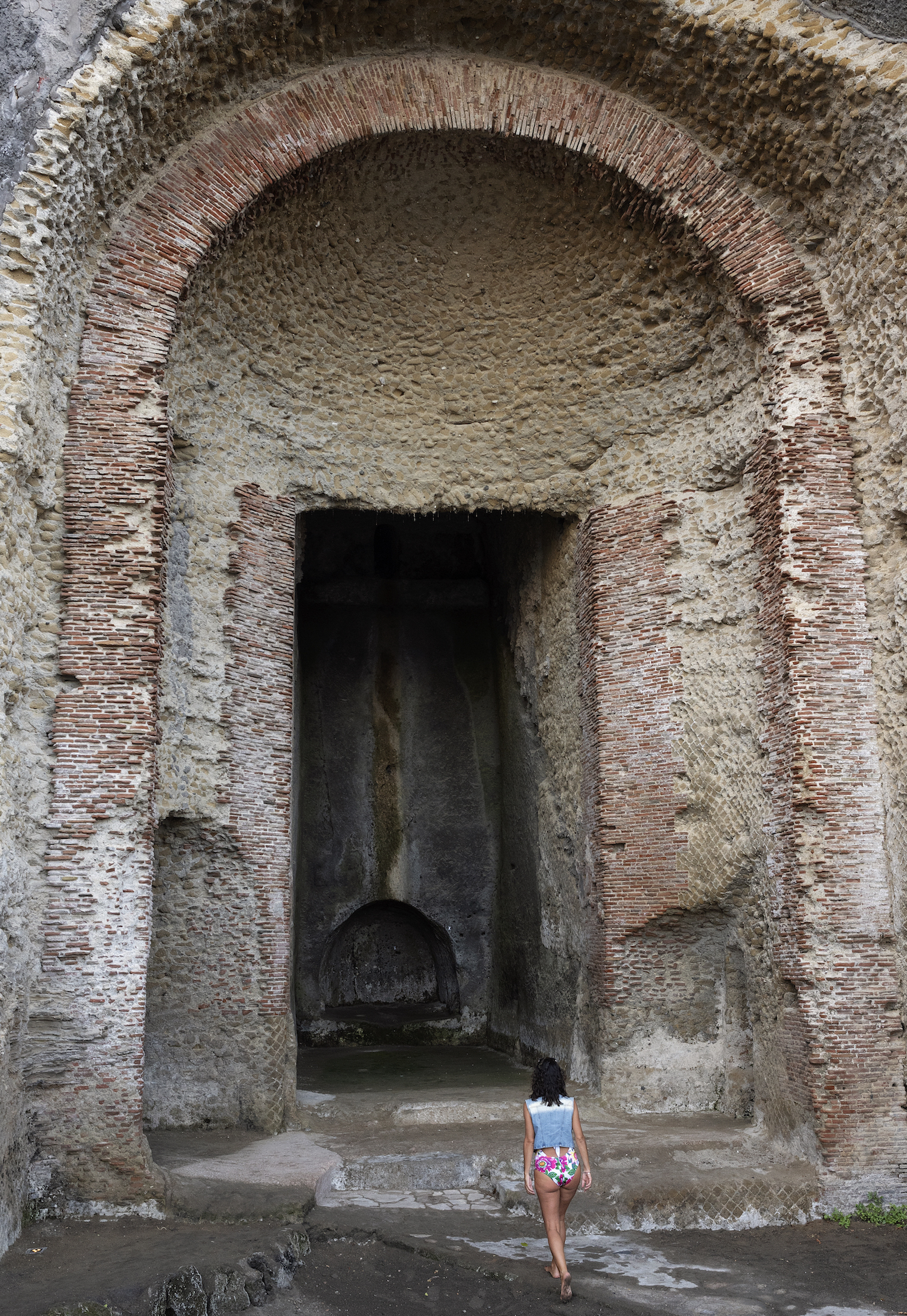
The interior of the fishpond | Ph. Anna Monaco
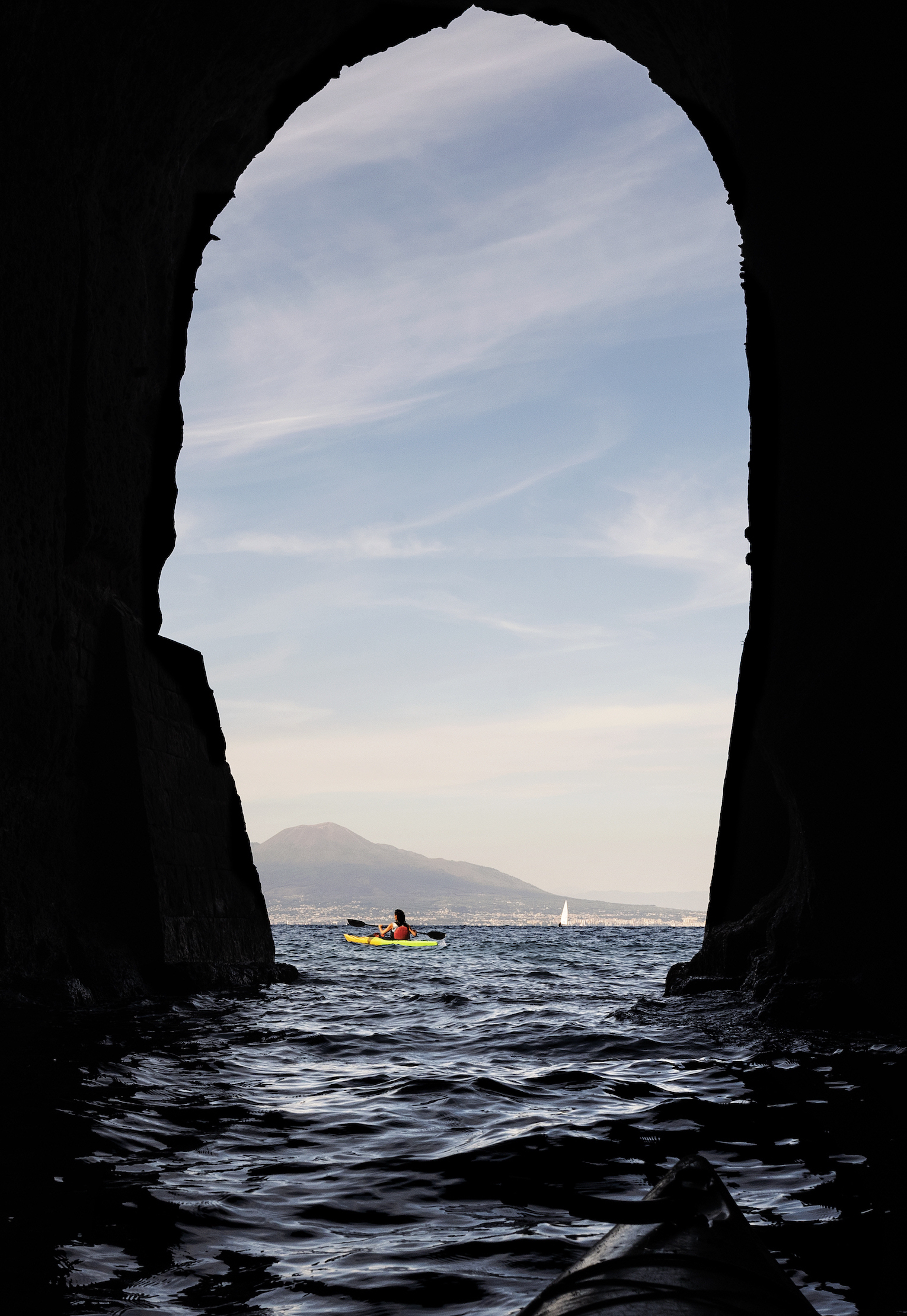
The ruins of that magnificent villa are still visible today, starting from the ramps carved into the tufa roch crag. The complex is incorporated into the Hotel Bellevue Syrene and the Bagni Salvatore beach club. It may be reached along a small road behind the beach, in front of which graceful boats with lateen sails moor.
Incredibly, two nymphaeums are hidden here, creating an impressive setting to amaze and create spaces of great peace and beauty. The Minor one was covered with a vitreous mosaic, while the Major one was decorated with limestone deposits, the so-called “sea-foam”. Inside, there were waterfalls based on a complex hydraulic system. A joy for the guests docking there.
The view from the nymphaeum | Ph. Anna Monaco

You may enter the fish pond with a kayak or by swimming, paying attention to the rocks emerging from the sea. In the cave that guards the two nymphaeums there’s an intense smell of sea which sticks on the skin. A silent echo spreads everywhere mitigating the sounds of boats outside.
At that time, the sea water was about a metre lower as can be seen from many structures now submerged, including the walkways in the cave. The humidity was such as to make it an excellent cell for the breeding of sea bream and moray eels so coveted by the patricians.
«…rudem sane bonarum artium et robore corporis stolide ferocem, nullius tamen flagitii conpertum»
«…though devoid of worthy qualities, and having only the brute courage of physical strength, had not been convicted of any gross offence»Tacitus - “The Annals”
Kayaking is the best way to visit Agrippa's residence | Ph. Anna Monaco
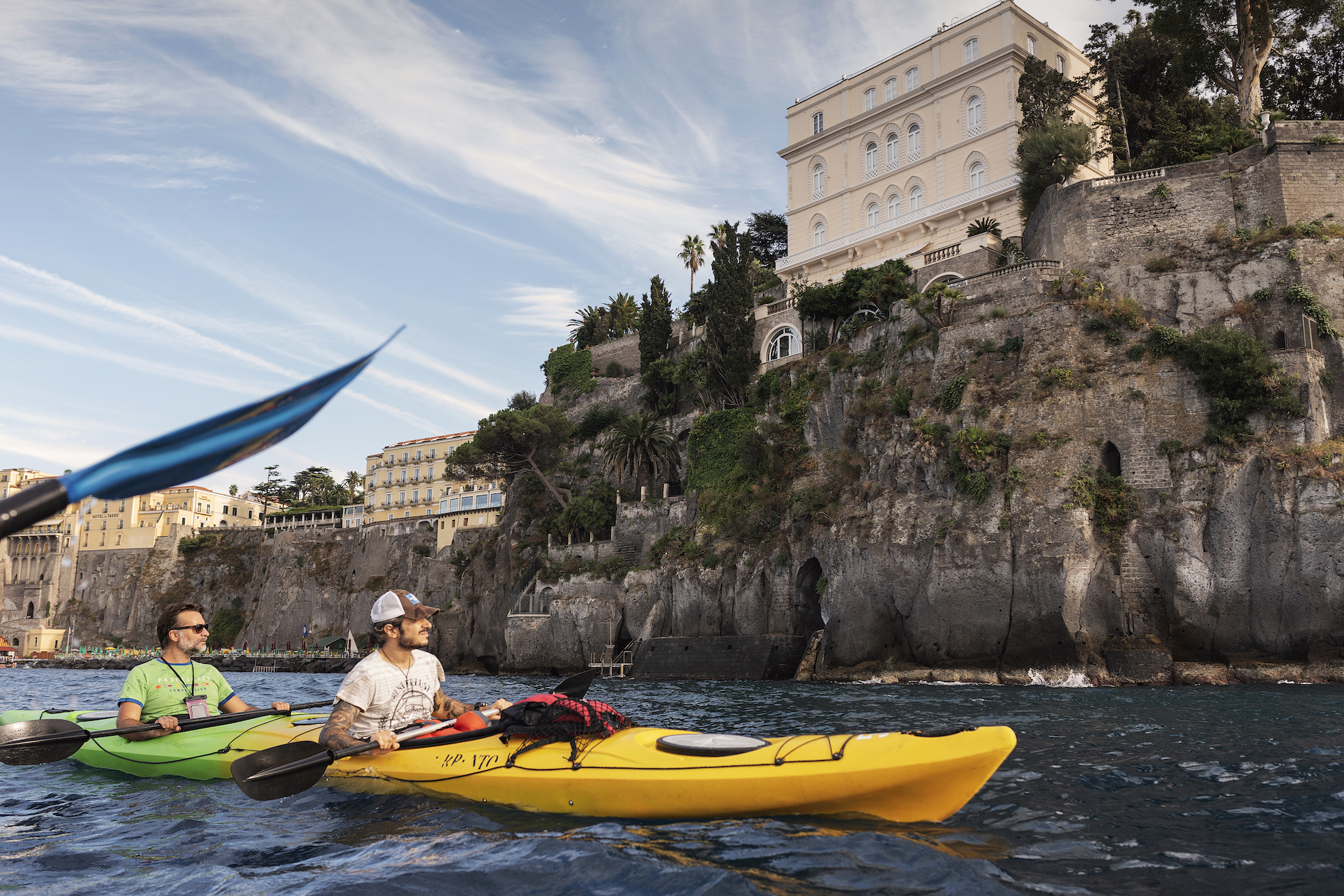
Countless looting and corrosive storms, over 2 thousand years of history, crushed this magnificent villa. But still today, with a little imagination, it’s easy to dream of Agrippa’s joyful life.
The sinuous tunnels carved in the rocks, the artificial canals where the water gushed and the Roman nymphaeums, now with the sea salt crystallized in the opus reticolatum, give unique suggetions and redeem the remembrance of this unlucky Poseidon of Sorrento. A young man, perhaps too naive and bizarre, but victim of an impetuous political propaganda that covered his name in mud.

